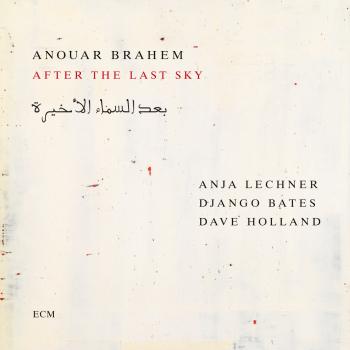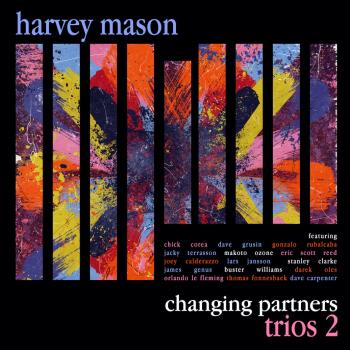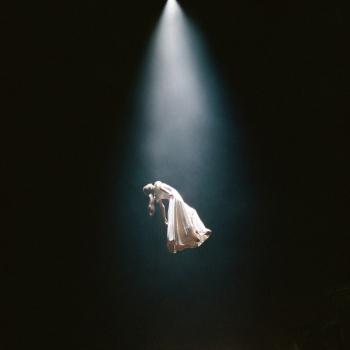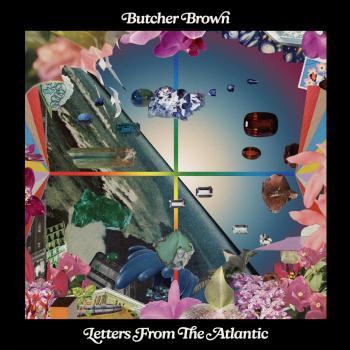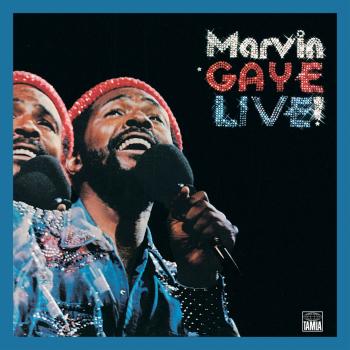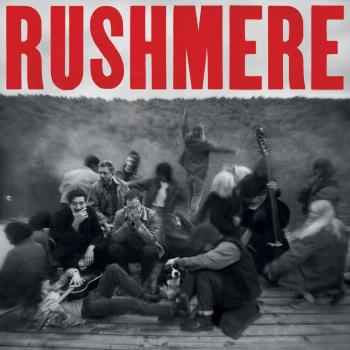
Diana (Remastered) Diana Ross
Album Info
Album Veröffentlichung:
1980
HRA-Veröffentlichung:
18.03.2016
Das Album enthält Albumcover
Entschuldigen Sie bitte!
Sehr geehrter HIGHRESAUDIO Besucher,
leider kann das Album zurzeit aufgrund von Länder- und Lizenzbeschränkungen nicht gekauft werden oder uns liegt der offizielle Veröffentlichungstermin für Ihr Land noch nicht vor. Wir aktualisieren unsere Veröffentlichungstermine ein- bis zweimal die Woche. Bitte schauen Sie ab und zu mal wieder rein.
Wir empfehlen Ihnen das Album auf Ihre Merkliste zu setzen.
Wir bedanken uns für Ihr Verständnis und Ihre Geduld.
Ihr, HIGHRESAUDIO
- 1 Upside Down 04:06
- 2 Tenderness 03:52
- 3 Friend To Friend 03:20
- 4 I'm Coming Out 05:24
- 5 Have Fun (Again) 05:57
- 6 My Old Piano 03:55
- 7 Now That You're Gone 04:00
- 8 Give Up 03:46
Info zu Diana (Remastered)
„Diana Ross would probably be offended by anyone who called her 1980 smash Diana a comeback, but let's face it -- after the flop of The Wiz, and the way that the disco revolution steamrollered so many of her Motown compatriots' careers, that's exactly what it was. Wisely hooking up with Chic's Nile Rodgers and Bernard Edwards (both the most traditionally rooted and most fearless of the major disco-era producers), Ross sounds more forceful than she had in years. The helium-toned style of her early hits with the Supremes is worlds away from the assertive way she rips into the funky hit "Upside Down." Even better, the joyous, celebratory "I'm Coming Out" is probably the best solo track of her career, and the heartfelt "Now That You're Gone" is one of her most subtle ballads. The glossy Chic production might sound a bit dated to some ears, but it's matured much better than many similar albums of the era. Overall, this is, in many ways, Diana Ross' best solo record.“ (Charity Stafford, AMG)
Diana Ross, lead vocals
Alfa Anderson, background vocals
Fonzi Thornton, background vocals
Luci Martin, background vocals
Michelle Cobbs, background vocals
Nile Rodgers, guitar
Bernard Edwards, bass
Tony Thompson, drums
Andy Barrett, piano
Raymond Jones, keyboards
Eddie Daniels, saxophone
Meco Monardo, trombone
Bob Milliken, trumpet
Valerie Haywood (The Chic Strings), strings
Cheryl Hong (The Chic Strings), strings
Karen Milne (The Chic Strings), strings
Gene Orloff, conductor
Recorded at Power Station and Electric Lady, New York, New York, Motown Studios, Hollywood, California
Engineered by Bob Clearmountain, James Farber, Neil Dorfsman, Ralph Osborn
Produced by Bernard Edwards, Nile Rodgers
Digitally remastered
Diana Ross
While still in high school Ross became the fourth and final member of the Primettes, who recorded for Lu-Pine in 1960, signed to Motown Records in 1961 and then changed their name to the Supremes. She was a backing vocalist on the group's early releases, until Motown boss Berry Gordy insisted that she become their lead singer, a role she retained for the next six years. In recognition of her prominent position in the Supremes, she received individual billing on all their releases from 1967 onwards.
Throughout her final years with the group, Ross was being groomed for a solo career under the close personal supervision of Gordy. In late 1969, he announced that Ross would be leaving the Supremes, and she played her final concert with the group in January 1970. The same year, following the relative failure of "Reach Out And Touch (Somebody's Hand)", Ross began a long series of successful solo releases with the US chart-topping "Ain't No Mountain High Enough". She continued to enjoy success with lightweight love songs in the early 70s, with "I'm Still Waiting" topping the UK charts in 1971, and "Touch Me In The Morning" becoming her second US number 1 in 1973.
In April 1971, she had married businessman Robert Silberstein. Motown's plan to widen Ross' appeal led her to host a television special, Diana!, in 1971. In 1972, she starred in Motown's film biography of Billie Holiday, Lady Sings The Blues, winning an Oscar nomination for her stirring portrayal of the jazz singer's physical decline into drug addiction. However, subsequent starring roles in Mahogany (1975) and The Wiz (1978) drew a mixed critical response. In 1973, she released an album of duets with Marvin Gaye, though allegedly the pair did not meet during the recording of the project. She enjoyed another US number 1 with the theme song from Mahogany, subtitled "Do You Know Where You're Going To", in 1975.
Her fourth US chart-topper, "Love Hangover" (1976), saw her moving into the contemporary disco field, a shift of direction that was consolidated on the 1980 album Diana, produced by Nile Rodgers and Bernard Edwards of Chic. Her choice of hit material continued to be inspired and the 80s started with a major hit, "Upside Down", which rooted itself at the top of the US chart for a month, and reached number 2 in the UK. Similar but lesser success followed with "I'm Coming Out" (US number 5) and "It's My Turn" (US number 9), although she enjoyed another UK Top 5 hit with the jaunty "My Old Piano". The following year a collaboration with Lionel Richie produced the title track to the movie Endless Love.
Dieses Album enthält kein Booklet

